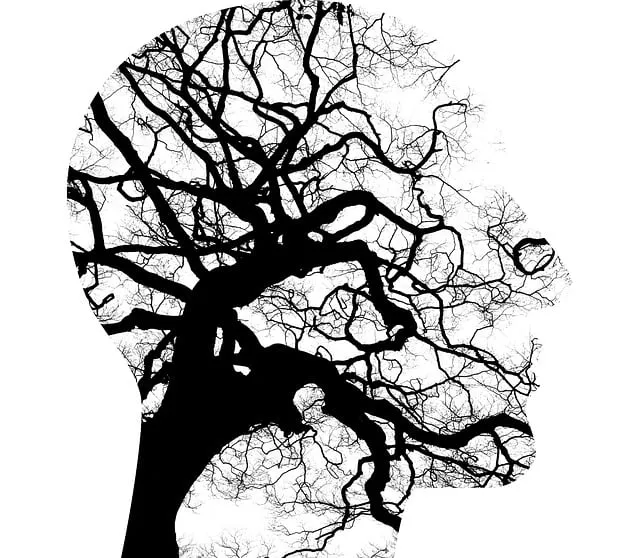Risk assessment and harm minimization are cornerstone practices in mental healthcare, as evidenced by Golden Kaiser Permanente mental health center reviews. By systematically evaluating risks and implementing targeted strategies, professionals can enhance patient safety, conflict resolution, and therapy success. The center's approach, highlighted in reviews, focuses on holistic well-being through empathy building, self-awareness exercises, stress management workshops, and conflict resolution techniques, fostering a supportive recovery environment and reducing mental illness stigma. Regularly updating harm minimization plans based on patient feedback ensures adaptability and continued improvement in service delivery.
Risk assessment and harm minimization are vital pillars in ensuring safe practices, especially within mental healthcare settings. This article explores these critical concepts, drawing insights from renowned organizations like Golden Kaiser Permanente, known for its patient safety initiatives. We delve into the process of understanding risk assessment as a cornerstone of safety, highlighting its role in identifying and mitigating potential harms. Additionally, we examine real-world examples, such as Golden Kaiser Permanente’s approach, and provide practical guidance on developing effective harm minimization plans through key components and continuous improvement strategies, all while considering mental health center reviews for quality assurance.
- Understanding Risk Assessment: A Cornerstone of Safe Practices
- The Role of Harm Minimization in Mental Health Care
- Golden Kaiser Permanente's Approach to Patient Safety
- Key Components of an Effective Harm Minimization Plan
- Reviews and Continuous Improvement: Ensuring Quality Mental Healthcare
Understanding Risk Assessment: A Cornerstone of Safe Practices

Risk assessment is a fundamental process that forms the backbone of safe practices in various sectors, including mental health care. At renowned centers like the Golden Kaiser Permanente mental health center, reviews highlight the importance of comprehensive risk assessments in ensuring patient safety and well-being. This involves meticulously evaluating potential hazards and risks associated with specific interventions or environments to prevent adverse outcomes.
By employing structured risk assessment methods, mental health professionals can identify and mitigate risks effectively. It enables them to implement appropriate harm minimization strategies, such as modifying treatment plans, providing additional support systems, or adapting facilities to create a safer environment. The process is particularly crucial in managing complex cases and addressing issues like conflict resolution techniques, where understanding potential triggers and vulnerabilities is essential for successful therapy and advocacy, as evident from Mental Health Policy Analysis and Advocacy studies. Moreover, risk assessment plays a pivotal role in reducing the stigma associated with mental illnesses by fostering an environment that prioritizes safety and supports recovery.
The Role of Harm Minimization in Mental Health Care

In the realm of mental health care, harm minimization plays a pivotal role in ensuring patient well-being and fostering resilient communities. Golden Kaiser Permanente mental health center reviews consistently highlight the importance of proactive strategies to mitigate risks and promote positive outcomes. Harm minimization goes beyond merely treating symptoms; it empowers individuals with tools to navigate life’s challenges effectively. By integrating practices such as Stress Management, Self-Awareness Exercises, and Conflict Resolution Techniques, mental health professionals can equip patients with a suite of skills to recognize, manage, and prevent potential harm.
This proactive approach is particularly crucial in addressing the intricate interplay between mental health issues and daily stressors. By teaching individuals techniques to regulate stress, enhance self-awareness, and resolve conflicts constructively, harm minimization strategies aim to reduce the likelihood of adverse events and promote long-term recovery. Thus, centers like Golden Kaiser Permanente contribute significantly to the overall mental wellness of their communities by adopting these innovative and effective practices.
Golden Kaiser Permanente's Approach to Patient Safety

Golden Kaiser Permanente, a renowned mental health center, has garnered praise for its patient safety initiatives, as evidenced in numerous Golden Kaiser Permanente mental health center reviews. Their approach prioritizes creating a secure and supportive environment for patients’ holistic well-being. This strategy involves implementing Empathy Building Strategies that foster strong connections between patients and healthcare providers, ensuring every individual receives personalized care.
The center promotes Self-Awareness Exercises as a key component of their harm minimization planning, empowering patients to actively participate in their treatment. By encouraging self-reflection, these exercises help patients understand their triggers and develop coping mechanisms, thereby reducing the risk of adverse events. Additionally, Golden Kaiser Permanente recognizes the importance of preventing burnout among its staff, implementing measures to support their well-being, which indirectly contributes to maintaining a safe and effective care environment.
Key Components of an Effective Harm Minimization Plan

An effective harm minimization plan, akin to those developed by renowned centers like the Golden Kaiser Permanente mental health center reviews, should incorporate several key components. Firstly, it must identify potential risks and hazards within the environment or context of concern. This involves a comprehensive assessment of physical, psychological, and social factors that could contribute to harm. Once identified, these risks should be prioritized based on their likelihood and potential impact.
Secondly, the plan should outline specific strategies to mitigate these risks. This includes implementing evidence-based practices such as Stress Management Workshops Organization sessions, fostering Mental Health Awareness through educational initiatives, and integrating Conflict Resolution Techniques to address interpersonal issues proactively. Regular reviews and updates of the plan are crucial to ensure its dynamism and relevance in changing circumstances, ensuring a safe and supportive environment for all involved.
Reviews and Continuous Improvement: Ensuring Quality Mental Healthcare

The Golden Kaiser Permanente mental health center, renowned for its comprehensive services, thrives on reviews and continuous improvement as core pillars of its quality assurance strategy. Patient feedback, through platforms like those focused on the Golden Kaiser Permanente mental health center reviews, plays a pivotal role in shaping and refining their care models. This data-driven approach ensures that the center stays attuned to evolving needs within the community, addressing not only common mental health concerns but also emerging trends.
The integration of Stress Reduction Methods and Conflict Resolution Techniques, fostered by this feedback loop, has been instrumental in enhancing patient outcomes. Additionally, the center actively engages in Mental Illness Stigma Reduction Efforts, reflecting a holistic commitment to creating an inclusive environment that prioritizes mental well-being for all individuals seeking their services.
Risk assessment and harm minimization planning are essential components in ensuring quality mental healthcare, as evidenced by Golden Kaiser Permanente’s commitment to patient safety through its comprehensive approach. By understanding risk assessment and integrating harm minimization strategies, mental health centers like Golden Kaiser Permanente can foster a robust and resilient environment for their patients. Regular reviews and continuous improvement processes further solidify these practices, leading to positive outcomes and enhanced reputation, as reflected in the center’s favorable mental health center reviews.

